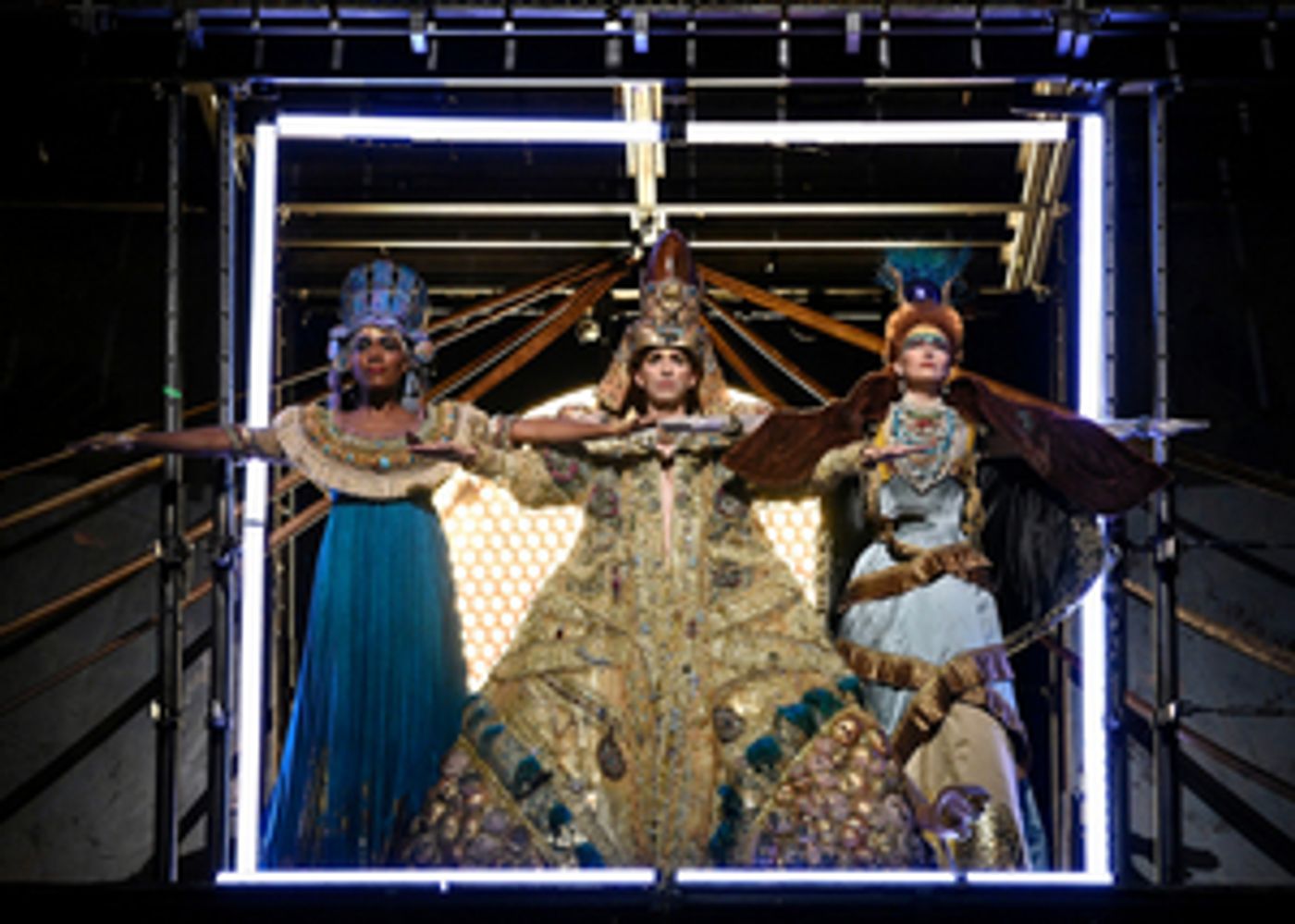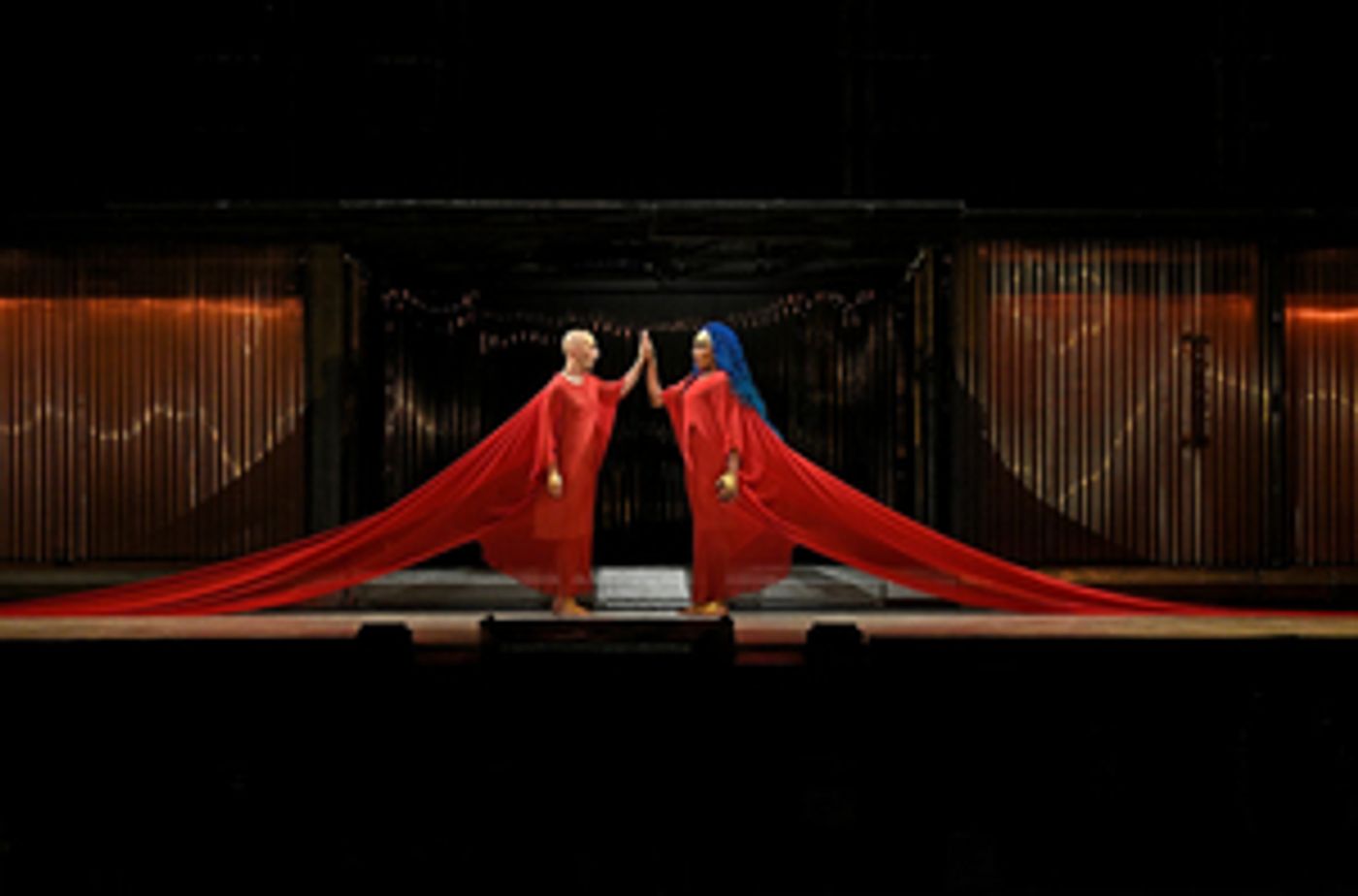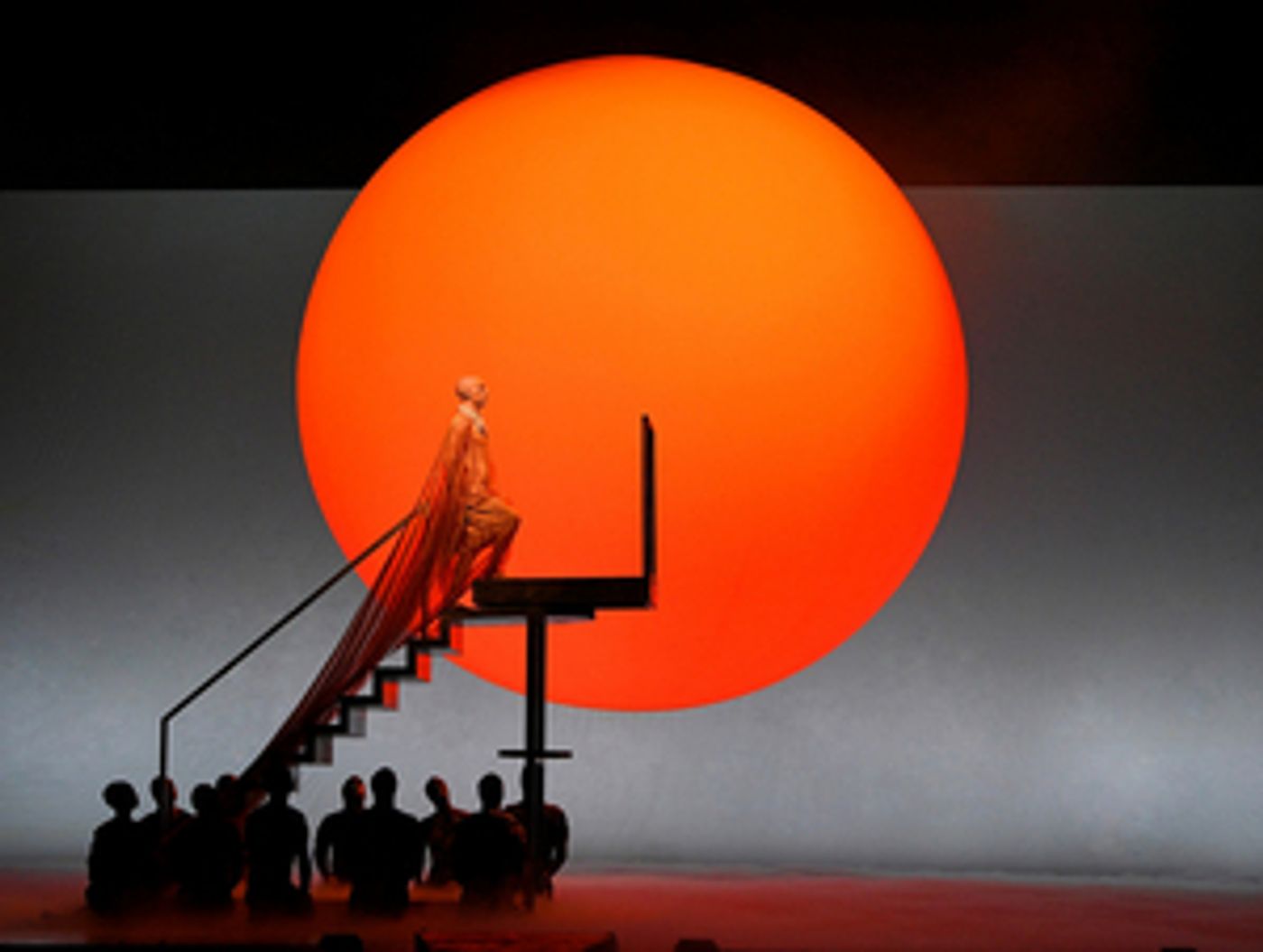Review: Bring on the Jugglers, Philip Glass's AKHNATEN Finally Arrives at the Met
Anthony Roth Costanzo in a Standout Performance

Disella Larusdottir. Photo: Karen Almond/Met Opera
It has taken 35 years for Philip Glass's AKHNATEN to get to the Met, since its premiere at the Staatsoper in Stuttgart in 1984. If you're an acolyte of Glass, Phelim McDermott's production, designed by Tom Pye, made it well worth the wait; if you're not, there's enough going on to keep you occupied during the 3 ½-hour performance.
Most people think of Philip Glass as a very serious, semi-accessible Minimalist composer who works in a large variety of musical forms. In fact, he's a much sought-after film composer, having scored such varied works as "The Hours," "The Truman Show," "Notes on a Scandal" and "Koyaanisqatsi: Life Out of Balance," as well as documentaries by Errol Morris, among many others.
Most recently, his music was heard in New York in a gorgeous string quartet as part of the production of "King Lear" with Glenda Jackson, but it is frequently performed at New York City Ballet in Jerome Robbins' "Glass Pieces," which uses Glass' "Rubric" and "Façades" from Glassworks and excerpts from AKHNATEN.
Serious? Yes. Yet, this is the second Glass opera I've seen within a year (the other was SATYAGRAHA at BAM last November) that incorporates elements of circus and acrobatics and juggling--without ever seeming extraneous or "gimmicky". Neither does the use of four different languages (original Egyptian, Hebrew, Akkadian and the vernacular of the audience) that Glass and a team of collaborators compiled from various sources, from ancient inscriptions to the Bible's Psalm 104 to the Fodor guide to Egypt.

Photo: Karen Almond/Met Opera
The result is a fascinating work that is constructed as a series of unconnected scenes, with a score that is repetitive without being boring in the least. It is mesmerizing in its execution by the stellar cast, the Met chorus under Donald Palumbo and most certainly by the Met's orchestra, under Karen Kamensek, which met the score's multiple challenges head on and triumphed. The opera's mood left me enraptured, through its stylized movement and choreography by Sean Gandini that frequently visualized the transportive score.
While I thought the circus elements worked better in bringing the production of SATYAGRAHA to life, the juggling in AKHNATEN was more successful in creating material images from Glass's often-dizzying music. The dozen jugglers dressed in spandex--using clubs, balls and beachball-like objects--were fascinating to watch and often brought a smile to my face. Yet, I'm not sure that Glass's rhythms needed that much help from the members of Gandini Juggling in making their point to the audience.

Photo: Karen Almond/Met Opera
Of the performers, the standout--for the sheer audacity of his portrayal, both dramatically and vocally--was clearly countertenor Anthony Roth Costanzo. He met the audience, bald and hairless as a sphynx cat, and stripped naked as we see his transformation from the young son of Amenhotep III (bass Zachary James, who forcefully narrates the piece) to the new pharaoh, who changes his name from Amenhotep IV to Akhnaten to fit his vision of a future for Egypt. Costanzo's voice is deceptively light: He easily cuts through the orchestration, with firm high notes and substantial lower ones.
As the king shows his change from boy to man, Costanzo is forceful in every way. In the section that is called "The Window of Appearances," the pharaoh reveals his intention of bringing a monotheistic religion to Egypt, to the god Aten of the sun--which will ultimately bring his downfall. This is a man clearly in charge.
While the other roles are much smaller, they are handled with great care. I particularly liked the trio for the pharaoh with Nefertiti, his wife--a sumptuous presence from mezzo J'Nai Bridges in her Met debut role--and Queen Tye, his mother (soprano Disella Larusdottir, as chilly as her Icelandic roots). Other singers of note were tenor Aaron Blake as the High Priest of Amon and, as previously mentioned, bass Zachary James, who, unfortunately doesn't get to sing but narrates with authority and is a powerful stage presence.
The set and projection design by Pye, with lighting by Bruno Poet, is as minimalist as Glass's music (and just as effective), in deep contrast to the luxurious costumes of Kevin Pollard.
Further performances of AKHNATEN will take place on November 19, the matinee on 23 and 30; December 4 and the matinee on the 7th. The Saturday matinee on November 23 will be transmitted worldwide as part of the Met's Live in HD series, which is now seen in more than 2,000 movie theaters in 73 countries.
A complete schedule with casting by date and performance times is available here.
Reader Reviews
Videos

